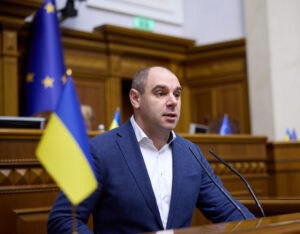
171 enterprises and communities from 14 regions of Ukraine have used the simplified procedure for changing the designated use of agricultural land to industrial and energy land for the construction of new enterprises and power plants. This was announced at the Kyiv International Economic Forum by Dmytro Kysylevskyi, Deputy Head of the Verkhovna Rada Committee on Economic Development. He is the author of the law that reduced the duration of changing the designated land use from 1–3 years to 1.5 months.
Decisions to change the designated purpose of land under the simplified procedure have been adopted for the construction of production and warehouse facilities (75 plots), production of energy from renewable sources (42 plots), industrial production and industrial parks (26 plots), and other facilities (28 plots). The highest number of positive decisions was adopted in Kyiv, Zakarpattia, Rivne, Zhytomyr and Kirovohrad regions. No positive decision has yet been adopted in Sumy, Donetsk, Zaporizhzhia, Ivano-Frankivsk, Luhansk, Odesa, Kharkiv, Kherson, Khmelnytskyi, and Cherkasy regions.
In total, under the simplified procedure, the designated use of land has been changed from agricultural to industrial and energy use for plots with a combined area of 1,050 hectares. Of these:
434 ha – production of energy from renewable sources
385 ha – production and warehouse facilities
121 ha – industrial production and industrial parks
110 ha – other.
“Land purchase and the subsequent change of its designated use for a long time was one of the most time-consuming and corruption-prone stages of making investments in industry and energy. On average, this simple procedure in essence used to take 2–3 years of bureaucracy, corruption, and humiliation of entrepreneurs. Now the situation has changed. The simplified procedure takes 1.5–2 months, and it allows saving time and money when launching new production. But most importantly, investors who dare to build industrial or energy facilities during the war feel a better attitude from the state,” noted Dmytro Kysylevskyi.
The simplified procedure for changing the designated use of land plots applies to agricultural land outside populated areas, where no urban planning documentation has been developed, for the placement of facilities in industry and energy defined by law:
Industrial buildings and warehouses
Pipelines, utilities, and power transmission lines (excluding main oil pipelines and main gas pipelines)
Complex industrial structures (excluding enterprises and facilities for the enrichment and processing of nuclear materials; facilities and furnaces for waste incineration; nuclear power plants)
Buildings for agricultural purposes, forestry, and fisheries.

The 2026 budget proposes to allocate UAH 4 billion to the production of Ukrainian films, according to Yevheniia Kravchuk, deputy chair of the parliamentary committee on humanitarian and information policy (Servant of the People faction).
“Next year, as part of the Ukrainian president’s ”1,000 Hours of Ukrainian Content” program, the state budget will finance the production of domestic content for all age groups. It is proposed to allocate UAH 4 billion for this purpose… This includes feature films, documentaries, cartoons, and the production of YouTube videos,” Kravchuk was quoted as saying by the press service of the Verkhovna Rada.
According to her, content for children has been allocated to a separate category, where the state will finance 100% of production.
“This refers not only to cartoons as such, but also to content for social networks, because children, especially teenagers, have a completely different content consumption structure. They watch videos on YouTube or short clips on social networks, and products will be created for them that will tell them about history and certain works of school literature, but everything will be presented in an interesting way. This is also necessary,” the MP emphasized.
She also noted that the Committee on Humanitarian and Information Policy has proposed that the Ministry of Culture and Strategic Communications add translations of popular games into Ukrainian to the list.
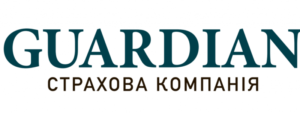
In January-September 2025 the insurance company “Guardian” (Kyiv) has collected UAH 826,5 mln of net insurance premiums, that is by 22,8% more than in the same period of 2024.
It was informed by RA “Expert Rating” in the information on updating of the insurer’s financial stability rating at the level “uaAA” according to the national scale following the results of the analysis of its activity in the reporting period.
The volume of gross premiums received by ALC IC “Guardian” in the 9 months of the year. 2025, has increased by 12,22% up to UAH 863,49 mln in comparison with the volume of gross premiums for the same period of 2024. Insurance payments made by the company for this period, amounted to UAH 315,3 mln, which is by 19,07% less than in 9M. 2024.
The level of indemnities of IC “Guardian” following the results of 9 months of 2025 compared to 9 months of 2024 has decreased by 14,11 p.p. and has amounted to 36,52%.
According to RA data, shareholders’ equity of the company as of September 30, 2025 has grown by 7,42% and has amounted to UAH 356,35 m, gross liabilities have increased by 25,89% to UAH 767,54 m. As a result of higher growth rates of liabilities, the ratio between equity and liabilities has decreased by 7.98 p.p. to 46.43%.
The volume of cash and cash equivalents on the accounts of IC “Guardian” has grown by 33,42% to UAH 191,06 m during the period on the reporting date, and the level of cash coverage of insurer liabilities has shown an increase by 1,40 p.p. to 24,89%.
RA also notes that as of September 30, 2025 the insurer has formed a portfolio of current financial investments in the amount of UAH 153,71 m, which consisted of bonds of internal and external state borrowings. The availability of IC “Guardian” portfolio of investments in government bonds positively influenced its provision with liquid assets, which in aggregate covered 44,92% of insurer liabilities.
It is also noted that according to the results of activity during the first 9 months of 2025 compared to the same period of 2024 the net profit of the company has grown by 86,31% to UAH 6,01 mln, operating profit has amounted to UAH 10,2 mln, while for the same period of 2024 the operating loss has been received.
IC “Guardian” is a member of the Presidium of the League of Insurance Organizations of Ukraine. Since January 2020 it has received the status of a full member of ITSBU, has the right to realize “Green Card” policies.
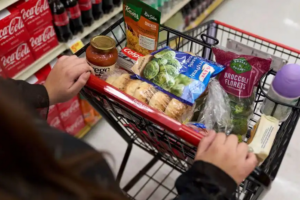
In the U.S. there is a real threat of suspension of payments for food assistance program Supplemental Nutrition Assistance Program (SNAP) from November 1 due to the ongoing federal government shutdown. This is reported by the U.S. Department of Agriculture (USDA) and the U.S. media.
USDA said in an October 24 memorandum that the agency does not intend to use its reserve funds (approximately $5 billion) to cover SNAP benefits in November because funding for the program has not been approved by Congress. More than 41 million people are at risk of not receiving food assistance in November.
Some states have already warned: if funding is not restored, SNAP benefits will not be paid on November 1.
SNAP is the largest food assistance program in the US: it covers about one in eight Americans (~42 million). Suspending payments could have serious social consequences: food insecurity for low-income families, increased reliance on food banks, and increased social tensions.
Until a decision on SNAP funding is made, states are taking different measures: some states have declared a state of emergency in order to use their own budgets to provide payments in November. However, such steps do not guarantee that the federal government will reimburse some of the costs. If the situation does not change by the end of October, the program could be partially or completely suspended in November, posing a serious challenge to the millions of people dependent on food benefits.
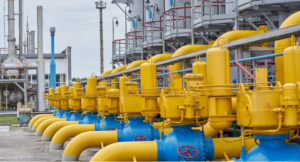
The National Energy Regulatory Agency (ANRE) of Moldova has approved the extension and updated conditions of the joint regional project for the transportation of natural gas along the so-called “Route 1” through the Trans-Balkan pipeline, which provides for a 50% tariff reduction for Moldova and Romania for gas supplies to Ukraine.
According to the agency, the decision was taken at the ANRE Council meeting on October 24, 2025 at the initiative of operators of gas transportation systems from Greece, Bulgaria, Romania, Moldova and Ukraine. The project is aimed at strengthening regional energy security and ensuring stable gas supplies to Ukraine.
“The Council approved the extension of the Route 1 product for six months – from November 2025 to April 2026 – as well as a 50 percent reduction in gas transportation tariffs for Vestmoldtransgaz (Moldova) and Transgaz SA (Romania) on key interconnectors,” the regulator said in its decision.
The Route 1 project envisages the use of the existing infrastructure of the Trans-Balkan gas pipeline, which connects Greece-Bulgaria-Romania-Moldova-Ukraine.
Through this route Ukraine can receive gas coming from the southern direction – from LNG terminals in Greece (Revitusa, Alexandroupolis) and from Turkish storage facilities.
The reduction of the Romanian and Moldovan tariff makes supplies through this line economically more favorable and increases the flexibility of gas purchases from alternative sources.
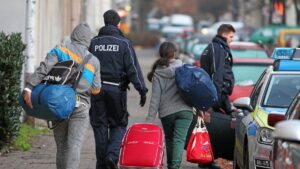
Germany in 2025 significantly increased the number of deportations, reports Neue Osnabrücker Zeitung, citing the federal government’s reply to a request from the Left Party’s parliamentary group.
From January to September 2025, 17,651 people were expelled from the Federal Republic of Germany, which is almost 3,000 more than in the same period of 2024 (14,706).
A significant share of those deported are citizens of Turkey (1,614) and Georgia (1,379). In total, 18% (3,095 people) are children and minors, and among those expelled there are also 275 people aged 60 to 70 and 54 people older than 70. By the end of 2024, the total number of deportations amounted to just over 20,000 people.
Representatives of the Left Party condemned the actions of the authorities, calling the policy “inhumane,” and noted that among those deported are students, elderly people, and the sick. According to German media, those expelled also include citizens of Eastern European countries, including Ukraine, but the exact number is not disclosed.
The procedure for deportation in Germany is regulated by the Residence Act (Aufenthaltsgesetz) and is carried out by the federal states on behalf of the Ministry of the Interior. Grounds for expulsion include loss of asylum status, refusal to extend a residence permit, or recognition of a person as a threat to public security.